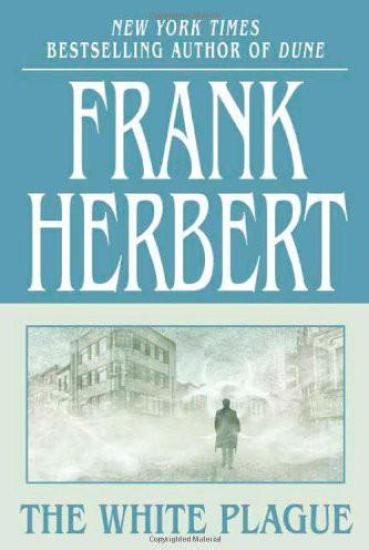
Series: Book 1 in the Novels series
Rating: Not rated
Tags: EN-Alire, Lang:en
Summary
What if women were an endangered
species?It begins in Ireland, but soon spreads throughout the
entire world: a virulent new disease expressly designed to
target only women. As fully half of the human race dies off at
a frightening pace and life on Earth faces extinction, panicked
people and governments struggle to cope with the global crisis.
Infected areas are quarantined or burned to the ground. The few
surviving women are locked away in hidden reserves, while
frantic doctors and scientists race to find a cure. Anarchy and
violence consume the planet.The plague is the work of a
solitary individual who calls himself the Madman. As government
security forces feverishly hunt for the renegade scientist, he
wanders incognito through a world that will never be the same.
Society, religion, and morality are all irrevocably transformed
by the White Plague. Frank Herbert is the author of the
1965 science fiction classic, Dune. He passed away in 1986.
What if women were an endangered species?It begins in Ireland,
but soon spreads throughout the entire world: a virulent new
disease expressly designed to target only women. As fully half
of the human race dies off at a frightening pace and life on
Earth faces extinction, panicked people and governments
struggle to cope with the global crisis. Infected areas are
quarantined or burned to the ground. The few surviving women
are locked away in hidden reserves, while frantic doctors and
scientists race to find a cure. Anarchy and violence consume
the planet.The plague is the work of a solitary individual who
calls himself the Madman. As government security forces
feverishly hunt for the renegade scientist, he wanders
incognito through a world that will never be the same. Society,
religion, and morality are all irrevocably transformed by the
White Plague. “Mr. Herbert . . . serves up an
intellectual disaster novel—a brilliant, brooding
meditation on the war between man's tendencies toward
self-destruction and his instinct for
self-preservation.”—Gerald Jonas, The New York
Times Book Review"A tale of awesome revenge."—The
Cincinnati Enquirer